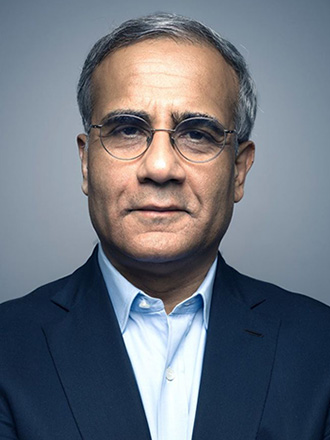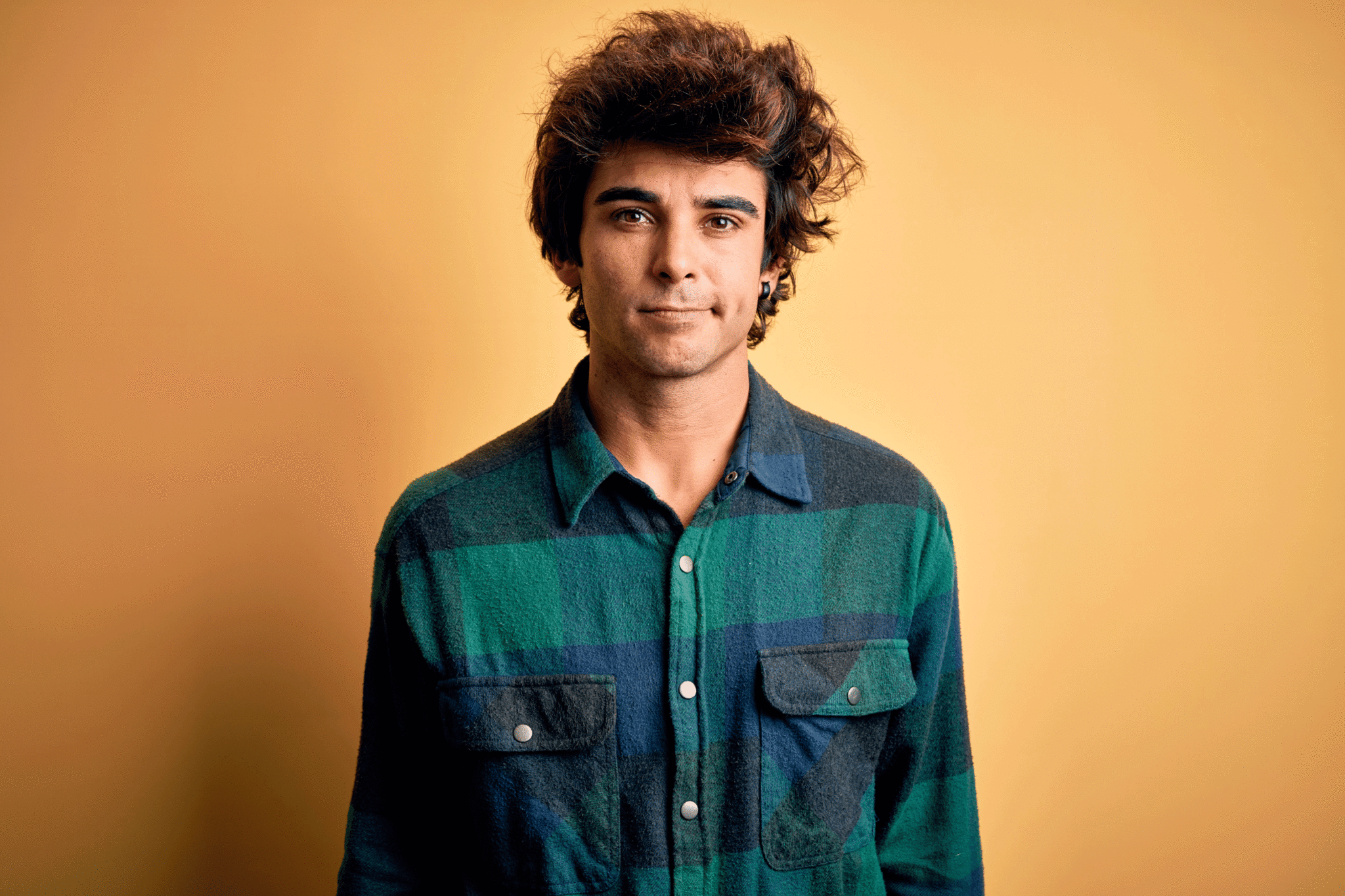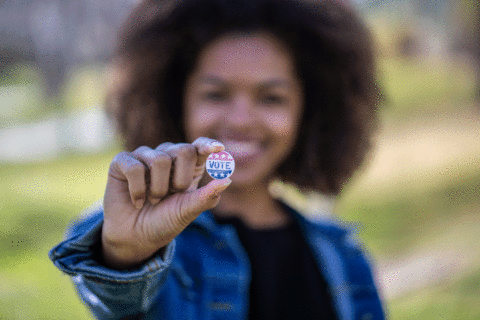Today, many of us are working from home and it is likely that this will continue for at least another six months until a COVID-19 vaccine is widely available and distributed.
What are some of the key changes that we are undergoing because of the global pandemic and what does this mean for researchers and insight professionals in the future?

We talk to Rishad Tobaccowala who is a Senior Advisor to the Publicis Groupe, most recently serving as the Chief Growth Officer and Chief Strategist, about what he sees ahead.
According to Tobaccowala, our behaviour and outlook on life will have changed over the past six months. We have formed new habits including working from home, reduced travelling, eating out and shopping trips and we will have had these new habits for over a year by the time a vaccine is widely available.
“People will probably go back in a different and reduced way. They will likely spend less time in the office, travel less for business, take more car trips, and for those who are not living on a subsistence level, think more about what matters in life.”
He also expects that companies, focusing on lower costs and more flexibility, will be very careful about bringing back the employees they have furloughed and may not bring them back at all, for instance Disney has just announced they will lay off 29,000 people, about 25% of their workforce. “In boardrooms, they are asking when we begin to add costs back, do we have to have all the people back and if we do, are there ways to make it more flexible?”
Tobaccowala therefore advises young people to think of themselves, rather than the company, as the fundamental of work as they will work from project to project similar to a consultant. Furthermore, many companies now recognise that if the work doesn’t require physical presence, they can access the best people from all over the world at any time. Similarly individuals can also access opportunities, anywhere at any time. This requires a mind-shift, which has already begun with ramifications that still need to play out for instance in healthcare or insurance.
“We are seeing a big change in the world of research, with much more research at a distance. Companies that are doing well are those that are enabled by mobile and modern technology who do not require people to gather together. There is also a far more intensive belief in data which is much more plentiful as people become more connected. As digital becomes the dominant medium where 65% to 70% of people are interacting, it is becoming a better proxy to understand what people are doing, compared to past adoption levels of 15% to 20%.
“With a lot of real time data flows, researchers need to learn about machine learning and adjacent areas. But in trying to understand the data, they must remember the emotional component and recognise the challenges we are all undergoing, as human beings are fragile and anxious and look for safety and connectedness.“
New normal vs. new strange
In Tobaccowala’s substack, he says that much as people hanker for life to go back to normal, there will be no new normal but a new strange.
“Even before COVID there were so many changes, demographically, technologically, and from a globalised perspective so it’s difficult to talk about what is normal or ‘the new normal’.
Supposing we went back to a normal after the recession in 2009, who could have predicted that most people would get their news from Facebook, or that an electric car company would become more valuable than the next four car companies in the world. But because of globalisation and demographic shifts, aging, multi-ethnicity and new tech, what we were seeing even before COVID-19 is a world that is faster, more polarised and unequal compared to 15 years ago.
“Talking about ‘the new normal’ promotes the unrealistic belief that we will go back whereas we are moving to a new place. So today if you go to a restaurant or travel in a plane, everything looks strange. Look at South Korea, where they have got the pandemic reasonably well under control, the restaurants, schools and way of living are different. Even if we have a highly distributed vaccine, there will be many changes. Research is so important to follow people, see what their dreams and expectations are, and to understand the constraints, including of technology. Some people say that globalisation is declining but forget that the pandemic is global, so are climate change, immigration and internet. So thinking about the new strange means that you are paying attention and trying to navigate your way, versus the new normal, which says ‘I am going back to business as usual’ which is a lazy way of thinking.”
How does this change impact companies? “I believe we will see a bifurcated economy as COVID is good for very large companies especially those that are capitalised on equity markets, so in retail it will be Walmart or Costco for tech it will be the larger companies because they have the wherewithal to survive all of this, where others do not. They have been able to use COVID to reduce costs and lay off people, so they will get bigger and more powerful.
“I also expect to see more freelancing and people working in small clusters of communities, building up a portfolio career and aggregating different sources of income. But companies in the middle will have neither the advantages of the big, nor the agility or reinvention of the small and could go out of business if they don’t have the capital, skills or flexibility to be resilient.
“These factors were already present and COVID is accelerating this trend because of digital trends which benefit solo operators as well as big companies. Studies by Blackstone says that about 15% of managers believe that the next two things they will do will be internal and the key thing they will talk about is managing costs, i.e. how to scale what I have, and how to make it flexible so I have the resource just when I need it.
“We are entering the third Connected age. The first was about search and e-commerce, which benefited small merchants as they could advertise, as well as Google and Amazon. The second Connected age was about social and mobile and that benefited us because we could talk to everybody but it also made two major operating systems, Android and IoS, and Facebook very powerful.
“The third Connected age, builds on the first two, and is particularly geared to a post COVID-19 era and hinges around several developments. The first is AI, which basically turns data into machine learning, the second is cloud computing and the third part is 5G which speeds up connections to the cloud, enabling voice as an interface. New technologies allow us to access almost anything online as a service, the world’s best software and people, and there are communities where they are looking for people with specific skills.
“COVID-19 is accelerating the rewiring of the world enabled by technology and now almost every CEO now believes that the future will be digital, distributed and faster. They have had to participate directly and now have a better idea of what is going on in their company. So if you are not adding value, by researching, writing or creating, and are just managing workflow or acting as an intermediary, management is realising they can access information and make decisions themselves without multiple meetings with lots of people. Large companies will have to go faster to adopt new approaches and anticipate their competitors as we have moved from slowly percolating ideas to an expresso age where you can’t hang around.”
Researchers reinvent
Is increasing unpredictability good for the insights and research field?
“Yes, providing you learn to reinvent yourselves. Research is critical when you have three things happening simultaneously: the first is radical change so people are hungry for insights to figure out their customers and the market place. Secondly, there are lots of new ways of doing research and new data because of digital and tech so researchers will need to learn new skills. Thirdly there is an understanding now that machines cannot predict forwards, they can only predict backwards. Therefore insights and the ability to make sense of information and add layers of intelligence, meaning and wisdom, which is what good researchers and analysts do, are going to be very important.”
Tobaccowala adds that the competitive set might also change and to some extent this is already underway.
“There are companies using modern tech that in a few years, will threaten a lot of research companies. They might be bought by existing players but what gives them competitive advantage is the speed with which they work and the way they are starting from ground up without much legacy; when they need legacy thinking, they just hire someone from the old guard.”
Resilience, relevance and new skills
As we see how quickly the consumer and competitive landscape is transforming, and irrevocable changes in the work world, which specific skills should researchers acquire to remain relevant?
“They need to get very comfortable with understanding the concepts of modern data collection and manipulation. Whilst they might not have to learn to code or all the AI techniques, they need to be aware of how much new data is available, what the new data sources are and some of the new computing strategies that they can plug into, plus a better understanding of the whole world of data including who the key players are.
“They must also enhance their communication skills and channels as increasingly they will do this through screens and at a distance; I use several ways of telling my story, like podcasts, videos and newsletters because different people have different preferences of how they like to communicate.
Tobaccowala underlines that the most important skill is the continuous ability to learn.
“No matter how sophisticated we are, the world is changing so fast, that we are perpetual students, and need the humility to continuously learn to provide perspective. Even if you are the most senior person in the company, you should spend at least an hour a day learning, to stay relevant and robust. Do something new, experiment because it makes the day feel different and forces our minds into new shapes. Build the case for the exact opposite of what you believe or are recommending as that interrogation will make you grow as you have investigated both sides. It will make your argumentation stronger, and offset the polarised nature of digital media.”
But isn’t there a limit to how flexible people can be?
“Yes, people want some stability. In an ideal world you would work for a company or in a team for three or four years. Very few people can constantly reinvent themselves so people will probably still work in organisations but they might be differently organised, or have to give up a certain amount of security. In my case, I work with large companies on an ongoing basis, but I don’t spend more than a day a week with them so that provides us both with stability and flexibility. I believe that people will have a portfolio career, which might mean working for the same company with different types of projects every few months or refreshing your skill sets every couple of years.
Rewired
Tobaccowala adds that we will need to rewire ourselves on an individual and organisational level for reinvention every couple of years as we enter this new world of fragility, resilience and resurrection.
“For instance, 2.2 million people were coming into Manhattan every day through the subway system. This will lose 12 billion dollars this year and is unlikely to ever be the same as before. By the time the pandemic eases, most companies will only require their employees to come to the office a couple of days a month so cities, businesses and people will need to be rewired, after a year of changed behaviour. As researchers and businessmen we want to peek into the future because we want to grow but tomorrow’s ideas might not fit into today’s language.
“Societies in the East are coping with COVID better as they tend to focus more on the community whereas the West focuses more on individuality and has more innovators. However, there is a new Silicon Valley in the cloud so perhaps innovation will happen not in one place but across communities because of that. You can have a Zoom conversation in most countries and that might be better than a meeting in New York as you come up with new ideas when minds interact.
“For me, poetry helps people learn how to communicate as it is the perfect words written in the perfect order, combining distilled words with great thought. The right poem gives you both strength and news about yourself, which is insights. We need to be more aware of humanity and how others feel; people want to grow, not just their balance sheet and business acumen but also as people.”
Rishad Tobaccowala is a Senior Advisor to the Publicis Groupe. Named by BusinessWeek as one of the top business leaders for his pioneering innovation, Rishad is also the author of Restoring the Soul of Business: Staying Human in The Age of Data which helps people think differently about how to grow their companies, their teams and themselves to remain relevant in transformational times. You can subscribe to Rishad’s free newsletter at rishad.substack.com.


